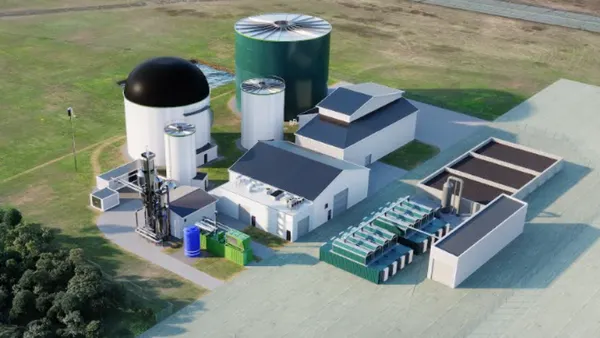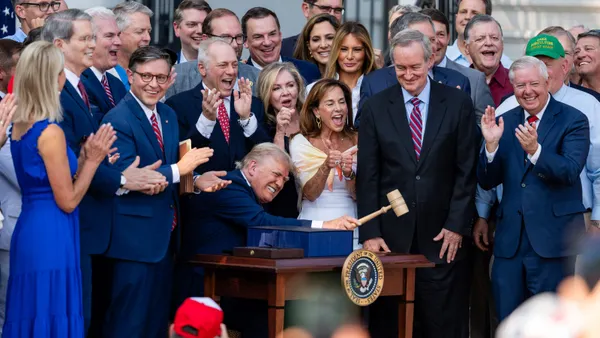Dive Brief:
- A meeting at the White House between President Donald Trump and a group of senators ended Tuesday without reaching any compromise on the future of the Renewable Fuel Standard (RFS), according to Bloomberg. Politico reports that another White House meeting is happening today with industry members, though did not confirm anyone from the biogas or waste industry was attending.
- Trump administration officials have been considering taking action that would help oil companies with their compliance costs. One big concern for oil refiners is the cost of tradable Renewable Identification Numbers (RINs), which track compliance to the RFS.
- Proposed changes include allowing RINs associated with biofuel that is exported to count toward domestic quota compliance, and EPA's suppression of costs by selling new ethanol waivers, Bloomberg reports.
Just left WH mtg on the RFS. Same discussion again. No deal made. RFS program design destroyed by RIN cap/waiver. Not “win win” promised Would destroy ethanol demand making benefits of RVP useless
— ChuckGrassley (@ChuckGrassley) February 27, 2018
Dive Insight:
Amid the talk of ethanol from corn and refined oil, it can be easy to forget the RFS applies to the waste industry, too. Gas from landfills and other biomass and biogas are listed as approved pathways for fuel under the RFS. Every discussion about the RFS, then, has an impact on the waste industry.
Executive Director of the American Biogas Council Patrick Serfass told Waste Dive in an email the inconclusive meeting was "nothing new" in a way — but the RFS remains a program worth investing in.
"It’s successfully incentivizing the production of renewable fuels which reduce the air emissions from vehicles while creating jobs and investment, much of it in rural America," Serfass wrote.
The finalized required volumes under the RFS for 2018 were higher than initially expected, providing some relief for biogas producers. Since then, however, there has been concern among the industry as Environmental Protection Agency Administrator Scott Pruitt has raised concerns over "fraud" in the program while, at the same time, Trump has reaffirmed his commitment to it.
Sen. Ted Cruz, from oil-producing Texas, has reportedly advocated for a price cap on RINs. A price cap, which could hypothetically be a part of any RFS reform, which means producers of biogas from landfills or digesters could receive less credit for the energy they produce, ultimately hurting their profitability.









